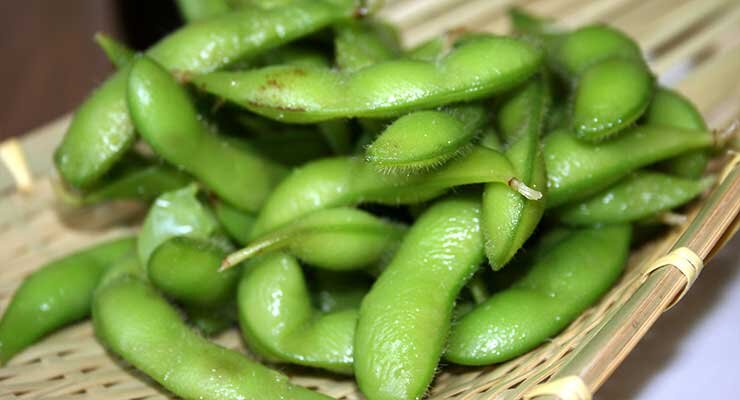By: Lilly Keitges
Patents go back to the Middle Ages, but patents on farming were not normalized until the passage of the Plant Patent Act of 1930.[i] The Plant Patent Act was passed to allow innovators to earn royalties to fund further research outside of land-grant universities and government agencies.[ii] This act was limited to plants propagated asexually by cutting parts of the stem rather than germinating seeds.[iii]
In 1970, Congress passed the Plant Variety Protection Act (PVPA) and expanded patent laws to cover sexually reproducing plants[iv] as long as the variety is new, distinct, uniform, and stable.[v] To enjoy protection under the PVPA, breeders need to file a certificate with the Secretary of Agriculture through the Plant Variety Protection Office.[vi] The certificate provided by the Plant Variety Protection Office certifies that the possessor has the sole privilege of selling, reproducing, importing, exporting, or using the variety to produce a different hybrid for a period of 20 years.[vii]
Monsanto Co. had patent protection on their Roundup Ready soybean seeds until the patent expired at the end of the 2014 growing season.[viii] Before the protection ended, Monsanto required farmers to promise not to save seeds for later use, their purchase of seeds functioning as a license for one growing season, only to be purchased from authorized resellers.[ix] In a 2013 Supreme Court case, an Indiana farmer was purchasing seeds not intended for growing from a grain elevator and planting it.[x] The Supreme Court ruled in favor of Monsanto, holding that when farmers save patented, genetically altered seeds without paying a fee, they are, in effect, stealing Monsanto’s intellectual property.[xi]The belief under U.S. law is that sufficient alteration of the base microorganism results in manufacturing for a novel use and thus legal.[xii]
The Supreme Court of India upheld India’s law, just last year, which doesn’t allow patents on seeds.[xiii] India doesn’t allow patents on seeds because they believe allowing that would imply that the holder of the patent, Monsanto in this case, is the inventor of life and the seed.[xiv] India’s Patent Law explicitly states biological organisms as excluded and thus not patentable.[xv]
The ethical argument made in favor of patenting GMOs involves rising population, and with more resilient crops, feeding the world will be more efficient.[xvi] Making certain crops disease resistant will help save varieties that may have otherwise disappeared due to rampant diseases, such as the Gros Michel banana and Panama disease.[xvii] There is also evidence that patentability helps increase innovation and research.[xviii] In arguing against the patentability of GMOs, arguments range wildly from concern over potential environmental risk to the religious approach arguing that all life is sacred, akin to India’s law.[xix]
There also exists the intellectual property concerns interwoven with market concentration; four transnational firms control 60 percent of the global seed market.[xx] With a large portion of the market share in only a handful of companies, there is a significant possibility of a decrease in competition and innovation in the market.[xxi] The scope of the utility patents on seeds and plant varieties are so broad that an independent breeder can unknowingly infringe on patent claims without seeing the original.[xxii] Utility patents may also lock-up plant genetics to adapt culturally important crops to fit changing climates and societal needs.[xxiii]
Arguments both for and against patentability have their merits depending on what the societal values may be. A middle ground should be found in order to encourage innovation but not deter lack of competition. The current scope of utility patents is too broad, allowing the protection of traits that result in the locking up of progress. The ownership of the seeds and seed patents remaining concentrated as they affect all growers and eaters. It will lead to privatization of seeds if something doesn’t change regarding to utility patents.[xxiv]
[i] Andrew Porterfield, Are seed patent protections abused by Monsanto and other agro-corporations?, Genetic Literacy Project (Jan. 5, 2018), https://geneticliteracyproject.org/2018/01/05/seed-patent-protections-abused-monsanto-agro-corporations/ [https://perma.cc/2ZML-H2HD].
[ii] Id.
[iii] 35 U.S.C. § 161.
[iv] Porterfield, supra note i.
[v] 7 U.S.C. § 2402(a).
[vi] 7 U.S.C. § 2323; 7 U.S.C. § 2421.
[vii] 7 U.S.C. § 2483.
[viii] What is the Impact of Monsanto’s Roundup Ready Patent Expiration?, N.C. Soybean Producers Ass’n (June 11, 2014), https://ncsoy.org/article/what-is-the-impact-of-monsantos-roundup-ready-patent-expiration/ [https://perma.cc/4MEG-R4ZU].
[ix] Erik Sherman, Supreme Court sides with Monsanto on seed suit, CBS News, (May 13, 2013, 1:57 PM), https://www.cbsnews.com/news/supreme-court-sides-with-monsanto-on-seed-suit/ [https://perma.cc/A8Z8-L4FM].
[x] Bowman v. Monsanto Co., 569 U.S. 278 (2013).
[xi] Porterfield, supra note i..
[xii] Christopher Haggarty-Weir, Arguments For and Against GMO Patents, MostlyScience (Mar. 10, 2019),https://mostlyscience.com/2019/03/arguments-for-and-against-gmo-patents/ [https://perma.cc/N2TZ-6SKA].
[xiii] Vandana Shiva, Seed freedom is our right. Monsanto doesn’t and can’t patent seeds in India, LifeGate (Jan. 10, 2019),https://www.lifegate.com/monsanto-india-seed-patent-vandana [https://perma.cc/E4LN-EMYM].
[xiv] Id.
[xv] Id.
[xvi] Haggarty-Weir, supra note xii.
[xvii] Id.
[xviii] Id.
[xix] Id.; Shiva, supra note xiii.
[xx] Kristina “Kiki” Hubbard & Cathleen Mccluskey, Op-ed: How Patents Threaten Small Seed Companies, Civil Eats (Sept. 11, 2020), https://civileats.com/2020/09/11/op-ed-how-seed-patents-threaten-small-seed-companies/ [https://perma.cc/3369-HF8T].
[xxi] Kristina “Kiki” Hubbard, The Sobering Details Behind the Latest Seed Monopoly Chart, Civil Eats (Jan. 11, 2019), https://civileats.com/2019/01/11/the-sobering-details-behind-the-latest-seed-monopoly-chart/ [https://perma.cc/X6M2-KK6D].
[xxii] Hubbard & Mccluskey, supra note xx.
[xxiii] Id.
[xxiv] Id.


